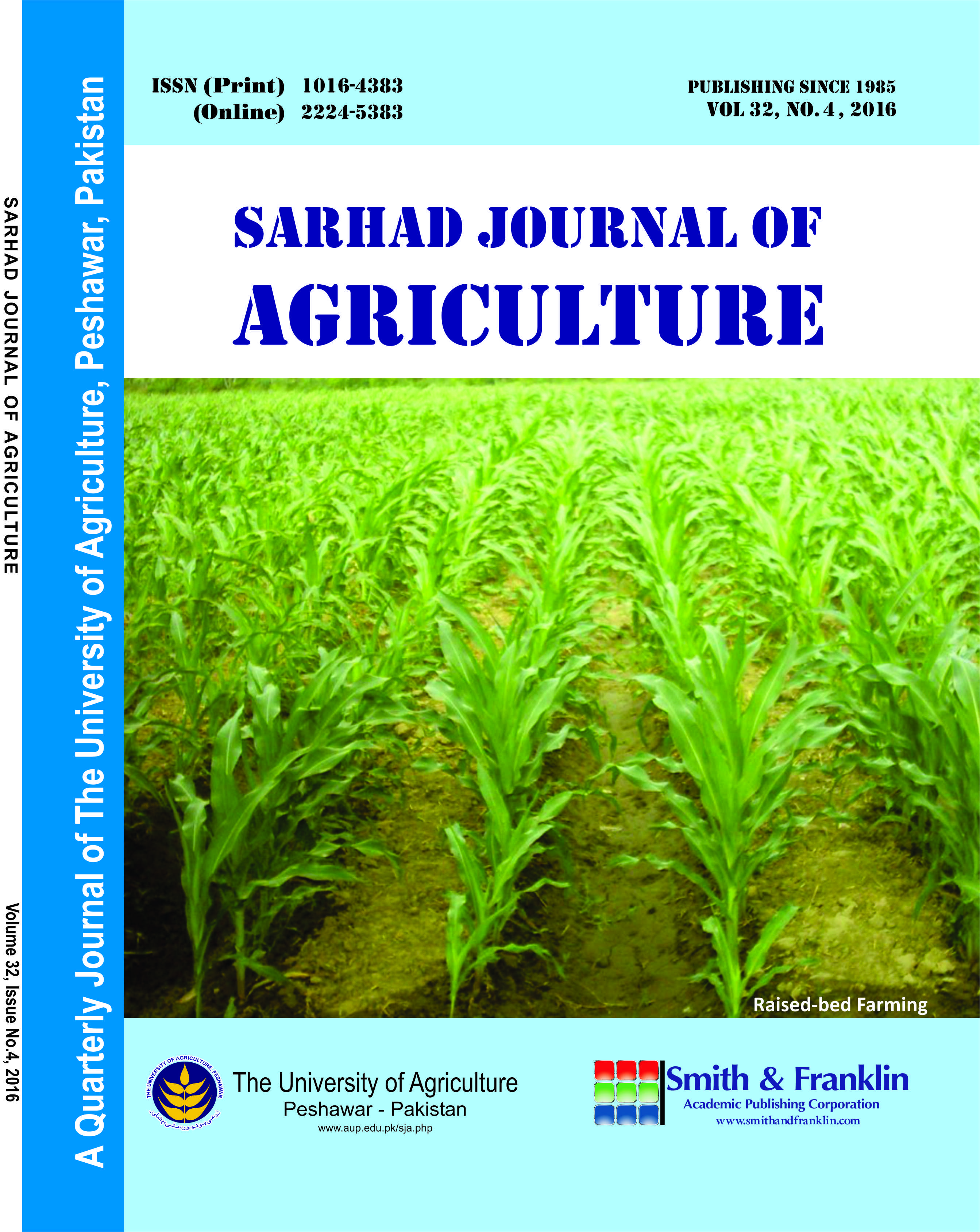Performance Evaluation of Downdraft Gasifier with Syngas Cleaning System
Performance Evaluation of Downdraft Gasifier with Syngas Cleaning System
Sidrah Ashfaq1, Muhammad Nadeem1*, Muhammad Yamin1, Talha Afzal1, Muhammad Waqar Akram1, Rabia Anam1 and Ali Mehboob2
ABSTRACT
Energy is a crucial factor and a capital of a country’s resources leading indicator. World’s energy focus is shifting towards alternate renewable, cheap and environment-friendly resources that can provide long-term sustainability for survival. Due to the fossil fuels depletion and their ever-growing cost, the need to shift focus towards renewable energy resources has increased a lot. To overcome the above-said problems, there is a need to look for a feasible and robust solution for thermal applications in remote areas. Biomass gasification proved to be one of the most efficient and clean waste-to-energy conversion processes in contrast to direct combustion of agricultural waste. Other than controlled burning of biomass, it can be subjected for different purposes like a thermal, synthesis of ethanol, engine running, and for fuel cell applications. An excessive amount of impurities like char, ash, tar, and particulate matter are making these syngas non-feasible for thermal or engine applications. To overcome the above-stated problem, a downdraft gasifier with cyclone separator and hybrid biomass filter was fabricated using locally available materials in the workshop of the Dept. of Farm Machinery and Power at the University of Agriculture, Faisalabad. Uniform distribution of 2.54-5.08 cm2 sizes of feedstock was used for gasification. Air was used as a gasifying agent. The reactor capacity was 0.19 m3. The values of performance parameters for wood waste and corncobs were recorded as fuel consumption rate (0.002195, 0.002323) kg-s-1, the volume of gas produced (24.56, 26.33) m3, operating time (5480, 5164) s, cleaning unit efficiency (81.79, 79.9) % and gas yield (2.04, 2.19) m3-kg-1.
To share on other social networks, click on any share button. What are these?








